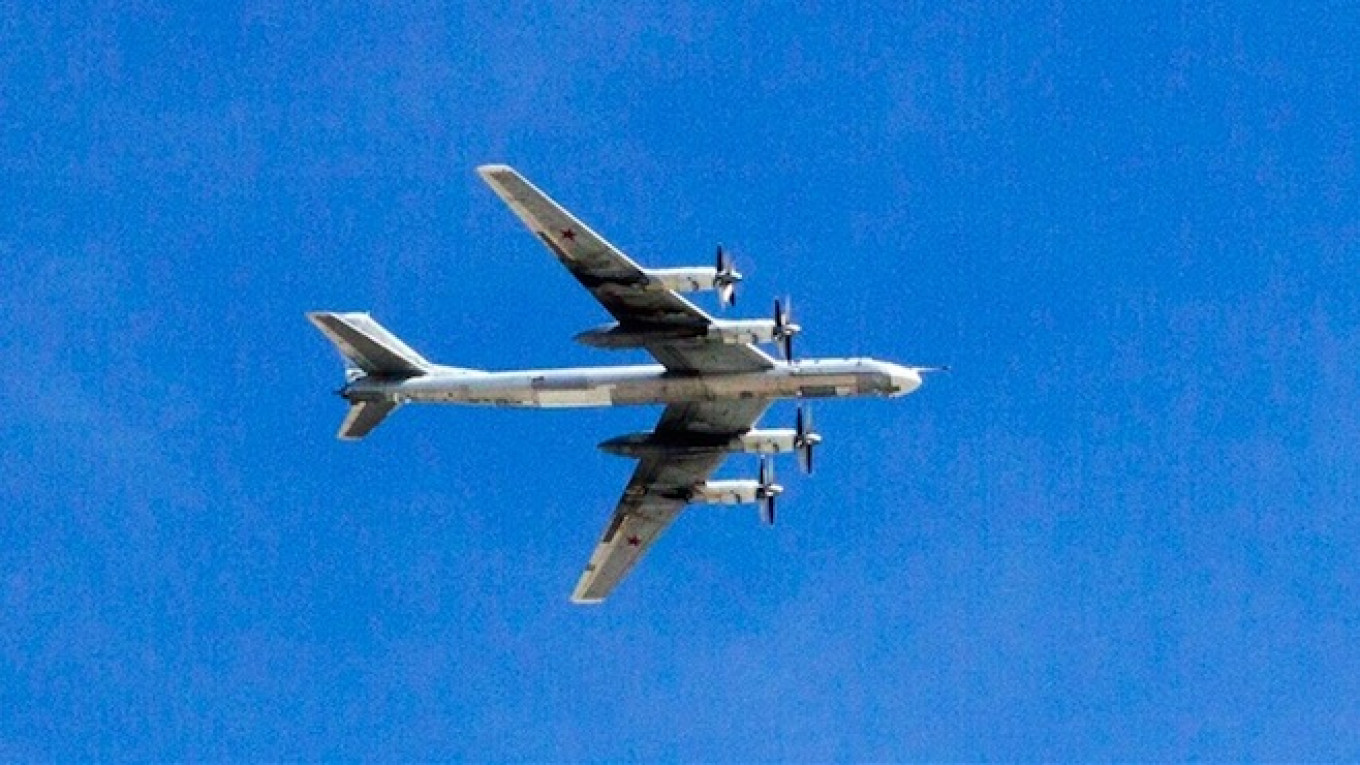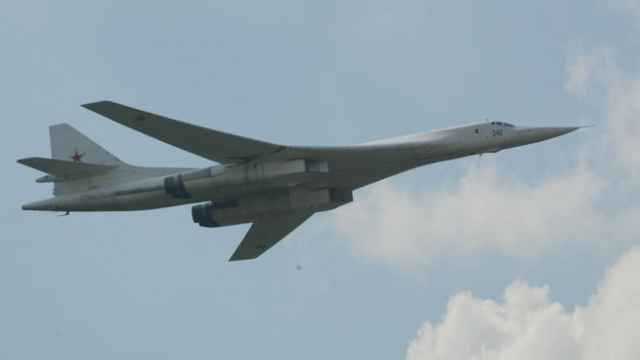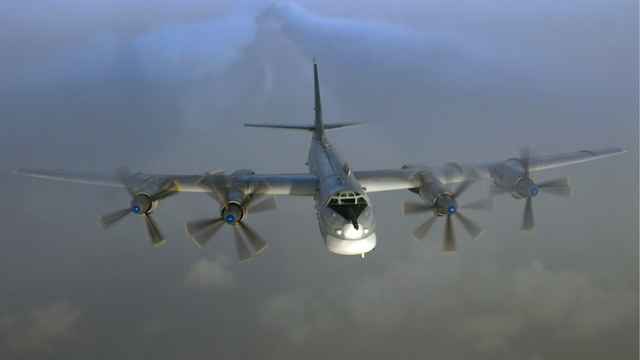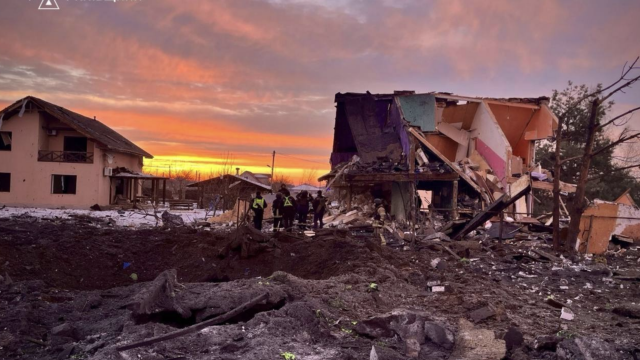Russia has grounded a type of strategic bomber famous for being used to probe U.S. and European air defenses, news agency Interfax reported Tuesday, temporarily granting European and U.S. airspace a slight reprieve from increased prodding by Russia's bomber fleet.
All 62 Tu-95 “Bear” bombers were grounded after one of the Soviet-built planes crashed late on Monday when an engine reportedly caught fire as the plane attempted to take off, causing the plane to run off the tarmac.
The crash killed one pilot and hospitalized another, a Defense Ministry spokesperson told Interfax on Tuesday.
The large, propeller-driven plane is derived from a Soviet-era copy of the U.S. B-29 bomber — the plane that dropped the atom bomb on Hiroshima and Nagasaki at the end of World War II.
NATO fighter jets in Europe and North America have been deployed repeatedly to intercept Tu-95s poking around near alliance airspace over the past year and a half as the Ukraine crisis drove a wedge in relations between Moscow and the West.
Tu-95 flights have also been the focus of multiple media reports in the West, as the planes have reportedly approached NATO airspace without transponders and on at least one occasion disrupted civilian traffic near Ireland, allegedly forcing flights to be diverted to avoid collisions.
The Tu-95 that crashed on Monday was based at the Ukrainka air base, one of Russia's two large strategic bomber bases. Bombers flying on long-range patrols from the base often fly north toward Alaska, then pass over the Aleutian Islands, before heading south over the Pacific and Sea of Japan.
Russia only has two other types of strategic bombers available for patrol: the long-range Tu-160 and shorter-range Tu-22M3 supersonic bombers, though the air force only has 16 and 63 of these types respectively.
A Message from The Moscow Times:
Dear readers,
We are facing unprecedented challenges. Russia's Prosecutor General's Office has designated The Moscow Times as an "undesirable" organization, criminalizing our work and putting our staff at risk of prosecution. This follows our earlier unjust labeling as a "foreign agent."
These actions are direct attempts to silence independent journalism in Russia. The authorities claim our work "discredits the decisions of the Russian leadership." We see things differently: we strive to provide accurate, unbiased reporting on Russia.
We, the journalists of The Moscow Times, refuse to be silenced. But to continue our work, we need your help.
Your support, no matter how small, makes a world of difference. If you can, please support us monthly starting from just $2. It's quick to set up, and every contribution makes a significant impact.
By supporting The Moscow Times, you're defending open, independent journalism in the face of repression. Thank you for standing with us.
Remind me later.






